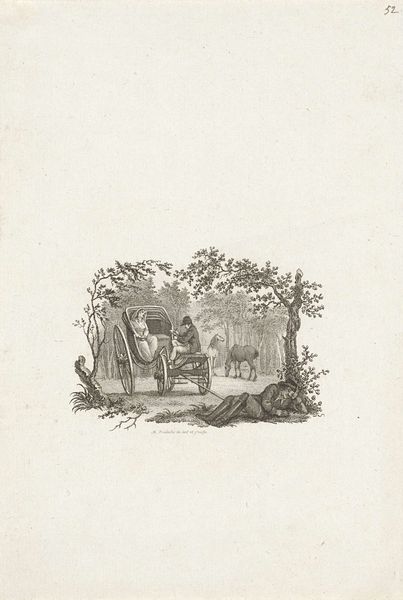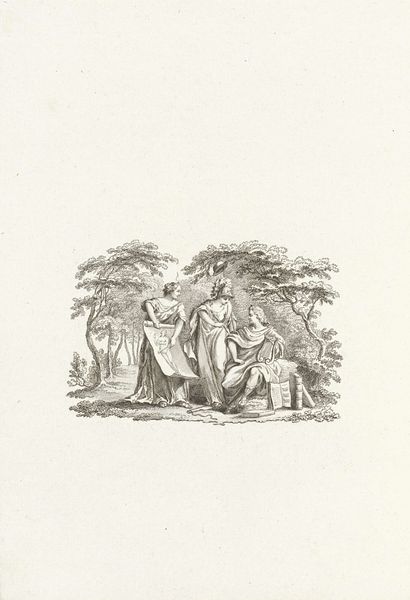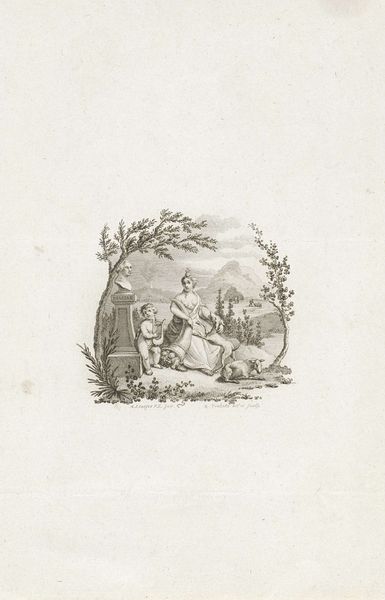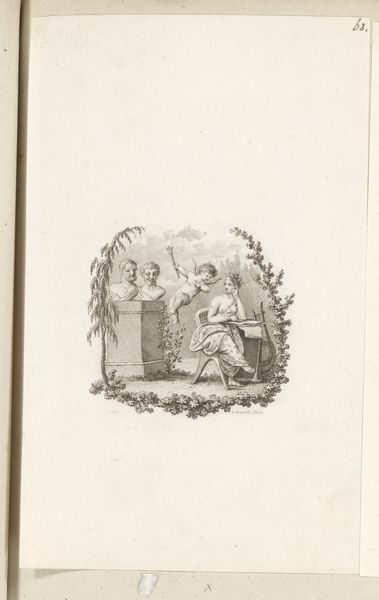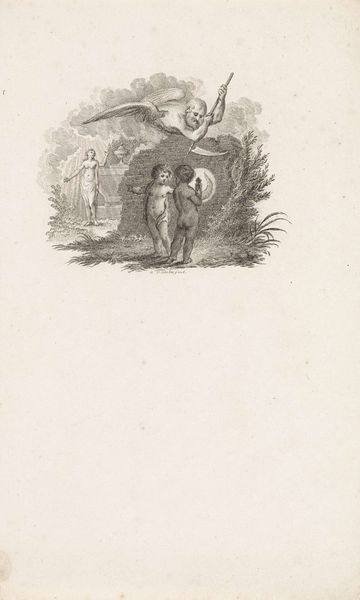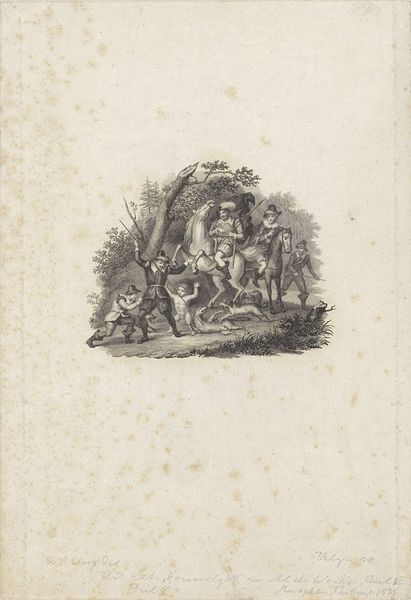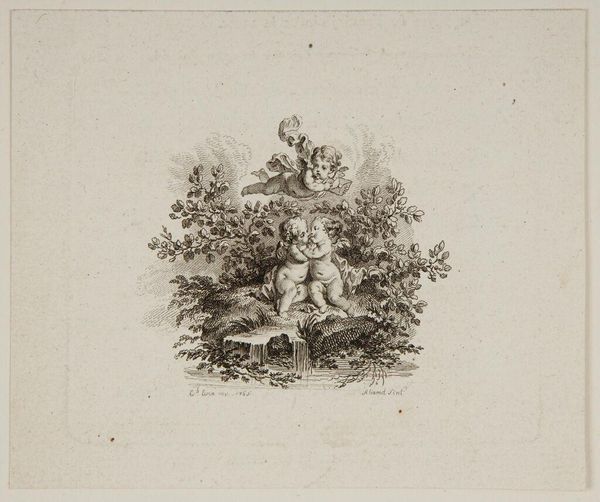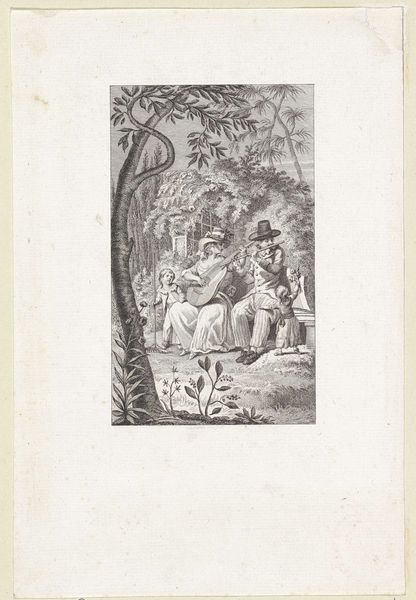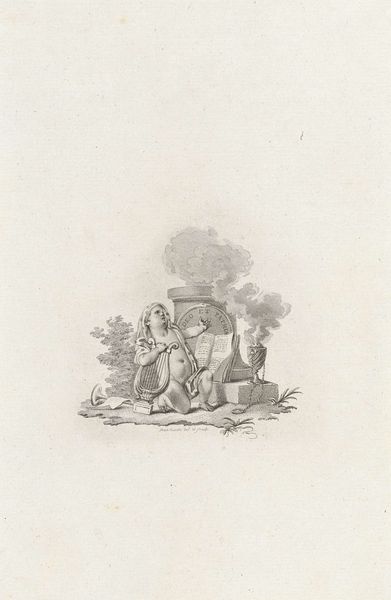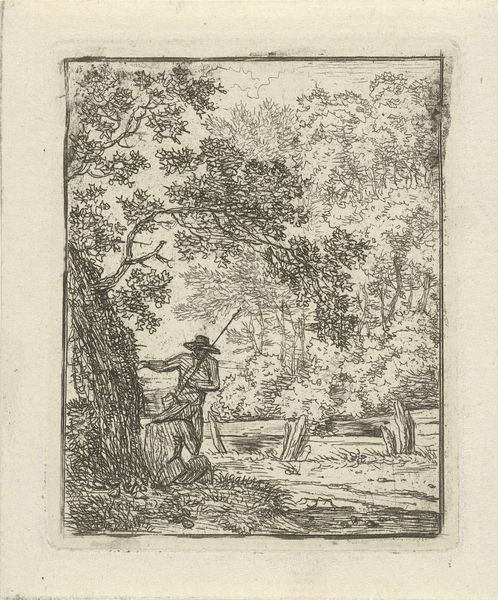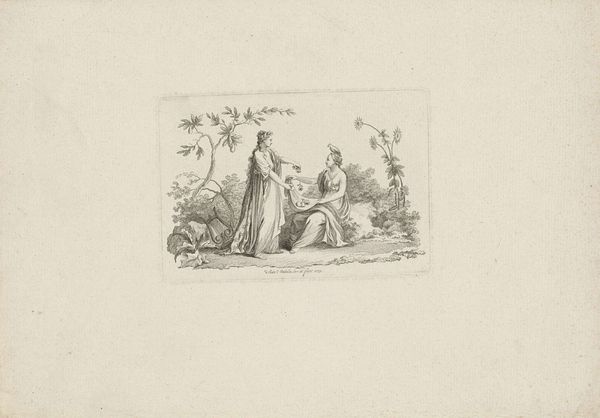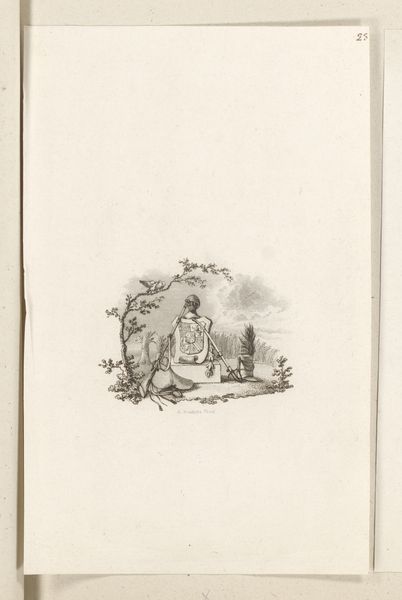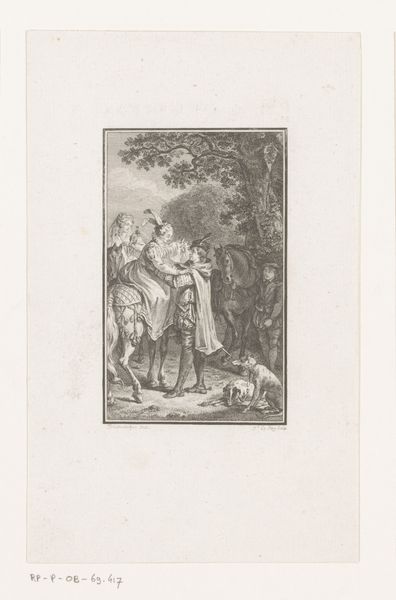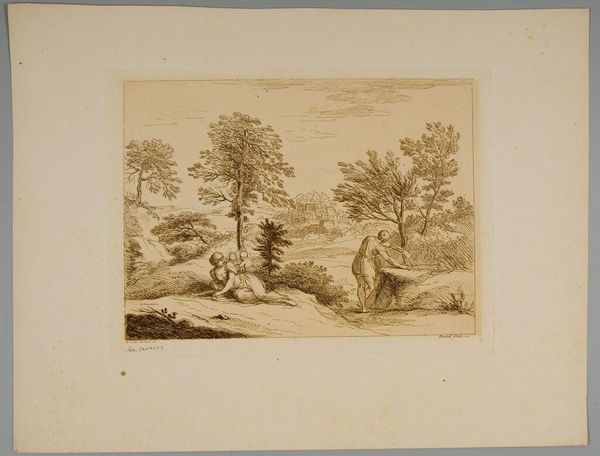
Dimensions: height 221 mm, width 134 mm
Copyright: Rijks Museum: Open Domain
Reinier Vinkeles made this delicate etching of putti carrying wheat into a barn, but we cannot know for sure when exactly it was made. The scene depicts a pastoral idyll, with cherubic figures engaged in labor, a common theme in European art. The print likely reflects the 18th-century fascination with agrarian life and the idealization of nature, especially popular in the Netherlands at that time. This romanticized view often served as a contrast to the growing urbanization and industrialization. The putti themselves are interesting; these figures are usually associated with classical mythology, which could indicate an attempt to ennoble the virtues of rural simplicity through historical and cultural references. To fully understand this work, one might research the economic conditions of the Dutch countryside during Vinkeles's lifetime or the popularity of classical motifs in Dutch art. Understanding the original context allows us to see the image not just as a pretty picture, but as a window into the values of a specific society.
Comments
No comments
Be the first to comment and join the conversation on the ultimate creative platform.
